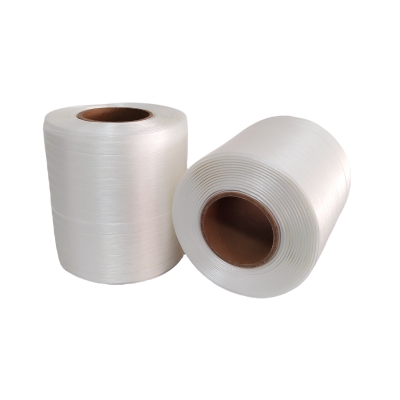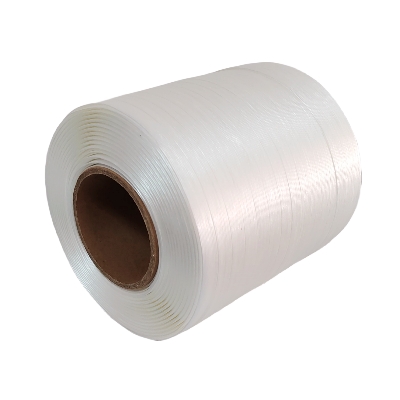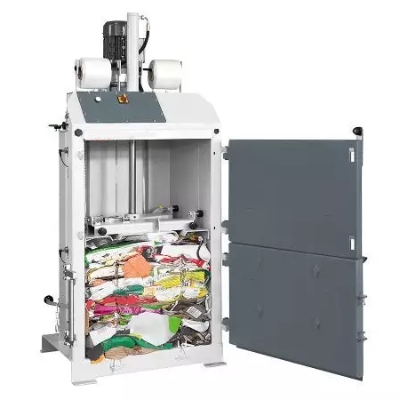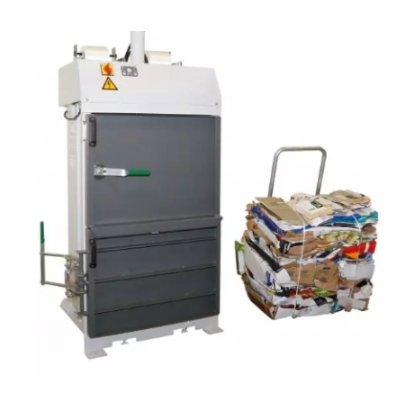- +86 136 65744767
- 09:00 AM - 5:00 PM
As industries look for reliable and efficient ways to manage waste and recyclable materials, baling strap, also known as bale press strapping, has become an essential tool. Designed specifically for vertical balers, baling strap is used to secure compacted bales of cardboard, plastic, textiles, and other recyclable materials. With its high tensile strength, durability, and ease of use, baling strap plays a crucial role in waste management, recycling, and industrial packaging.
Baling strap is a high-strength polyester or polypropylene strapping designed to bind and secure bales produced by vertical balers. These balers compress loose materials into dense, manageable bales, making it easier for businesses to store, transport, and recycle waste. Unlike traditional steel strapping, baling strap offers flexibility, resistance to tearing, and the ability to withstand pressure without breaking.


Baling strap is designed to handle the pressure of compacted materials, ensuring that bales remain tightly bound and secure throughout storage and transportation. It can withstand high tension without snapping, making it ideal for heavy-duty applications.
Baling strap is specifically designed to work with a variety of vertical balers, including those used for cardboard, plastic, foam, textiles, and aluminum cans. It ensures a tight and secure bind, preventing bales from loosening or falling apart.
Unlike some plastic strapping that can split or fray under pressure, baling strap is tear-resistant and maintains its integrity even under heavy compression. This durability makes it a reliable option for securing dense materials.
Baling strap is much safer to handle than steel strapping, which has sharp edges that can cause injuries. It is also lightweight and flexible, making it easier for workers to apply and remove.
Many types of baling straps are made from recyclable materials, helping companies reduce waste and promote sustainability. Additionally, it is more affordable than steel strapping, offering a cost-effective solution for waste management and recycling operations.
Baling strap is widely used in recycling plants and waste management facilities to bind compacted recyclables such as cardboard, plastic, and aluminum. It ensures that bales remain stable and easy to transport to processing centers.
Large retail stores and warehouses generate high volumes of waste, particularly from cardboard packaging. Baling strap helps secure compacted cardboard bales, allowing businesses to efficiently manage waste and improve recycling efforts.
Manufacturers use baling strap to bind production waste materials such as plastic film, fabric scraps, and excess packaging materials. This helps in keeping the workplace organized while ensuring recyclable materials are properly bundled for processing.
Farmers use baling strap to secure hay, straw, and other agricultural waste, ensuring compact bundles that are easy to transport and store. Its weather-resistant properties make it ideal for outdoor applications.
As businesses focus on waste reduction, recycling efficiency, and cost savings, baling strap is becoming the preferred choice over traditional strapping materials. Its ability to securely bind compressed materials, prevent load shifting, and withstand high pressure makes it an indispensable tool for industries looking to optimize their waste management processes.


Baling strap, or bale press strapping, is an essential solution for securing compacted bales of cardboard, plastic, textiles, and more. With its high strength, durability, and ease of use, it ensures that bales remain intact during storage and transport. As industries continue to prioritize recycling and sustainability, the demand for reliable baling strapping solutions is expected to grow, making it a valuable asset in modern waste management and industrial operations.